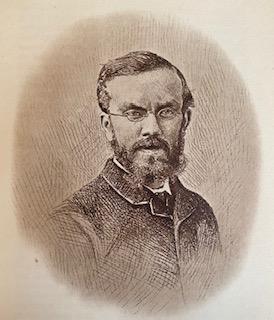
Zona de identificação
Tipo de entidade
Forma autorizada do nome
Forma(s) paralela(s) de nome
Formas normalizadas do nome de acordo com outras regras
Outra(s) forma(s) de nome
identificadores para entidades coletivas
Área de descrição
Datas de existência
Histórico
William Alexander Forbes was an English zoologist. He was the son of James Staats Forbes. He studied natural sciences at St John's College, Cambridge, and later taught at Rhodes College.
In 1879 he was appointed prosector to the Zoological Society of London. Forbes lectured on comparative anatomy at Charing Cross Hospital Medical School. As an anatomist he wrote papers on the muscular and voice organs of birds.
On 8 February 1878, Forbes was elected Secretary of the Cambridge Natural History Society. He also edited the book compiling the late Alfred Henry Garrod's scientific papers. The book was published in 1881 along with a memoir of Garrod written by Forbes.
In 1880 Forbes visited the forests of Pernambuco, Brazil, and published an account of his trip in The Ibis in 1881. In 1882 he travelled to West Africa to study the native fauna, starting from the mouth of the Niger delta. He was taken ill shortly after Christmas and died in Shonga.
Forbes is commemorated in the names of the Forbes's blackbird, Anumara forbesi, white-collared kite, Leptodon forbesi, and the Forbes's plover Charadrius forbesi.
Locais
Estado Legal
Funções, ocupações e atividades
Mandatos/fontes de autoridade
Estruturas internas/genealogia
Contexto geral
Área de relacionamentos
Área de pontos de acesso
Pontos de acesso - Assuntos
Pontos de acesso - Locais
Ocupações
Nota
1879-1883